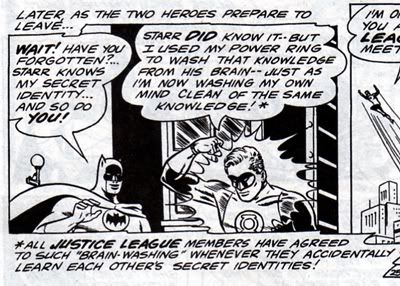
The atheists on carm are starting to throw little fits when I quote them. The point of qutooing so much of the posts is not to show that certain individuals are not up to intellectual par, but to demonstrate different things about atheist thinking. I quote a lot to give a full context. One guy in particular is really angry because I wont concede to his little tantrum insisting that I took him out of context but he wont say why. He put me on "ignore" (yea like that lasts for more than a day. I guarantee he will be answering my posts in a few days).
One of the major things we see from these exchanges and their whining and instance that I don't quote them is that they see when their words are put in a new presentation and placed along side other who weak their arguments are. That's not really my purpose. One of the main things I've been trying to illustrate recently is how they brain wash each other. They do this buy reinforcing one another in bigotry. When they go on the these long jags, one will put up a post saying "Its' Christianity stupid" the others will chime in 50 posts deep "Yes it sure is." "here's how stupid it was for me" and son. what they are really doing is brain washing each other.
Brain washing means socialization. When they re affirming each others prejudices they are telling themselves, "I get positive strokes from thinking this, if I express these opinions they will like me." they are telling each other, "you are accepted in social group because you say what we want to hear." You are not going to find brights lights in a little room where they beat each other with rubber hoses and demand "say you hate God!" The cybre equivocate of that is when 20 or 30 of them gang up on one person and keep saying outrageously insulting things becuase he expressed some form of belief in God. They are actually telling each other, See what will happen to you if you don't follow along.
Fair use law
US copyright office:
One of the rights accorded to the owner of copyright is the right to reproduce or to authorize others to reproduce the work in copies or phonorecords. This right is subject to certain limitations found in sections 107 through 118 of the copyright law (title 17, U. S. Code). One of the more important limitations is the doctrine of “fair use.” The doctrine of fair use has developed through a substantial number of court decisions over the years and has been codified in section 107 of the copyright law.
Section 107 contains a list of the various purposes for which the reproduction of a particular work may be considered fair, such as criticism, comment, news reporting, teaching, scholarship, and research. Section 107 also sets out four factors to be considered in determining whether or not a particular use is fair:
- The purpose and character of the use, including whether such use is of commercial nature or is for nonprofit educational purposes
- The nature of the copyrighted work
- The amount and substantiality of the portion used in relation to the copyrighted work as a whole
- The effect of the use upon the potential market for, or value of, the copyrighted work
The distinction between fair use and infringement may be unclear and not easily defined. There is no specific number of words, lines, or notes that may safely be taken without permission. Acknowledging the source of the copyrighted material does not substitute for obtaining permission.
The 1961 Report of the Register of Copyrights on the General Revision of the U.S. Copyright Law cites examples of activities that courts have regarded as fair use: “quotation of excerpts in a review or criticism for purposes of illustration or comment; quotation of short passages in a scholarly or technical work, for illustration or clarification of the author’s observations; use in a parody of some of the content of the work parodied; summary of an address or article, with brief quotations, in a news report; reproduction by a library of a portion of a work to replace part of a damaged copy; reproduction by a teacher or student of a small part of a work to illustrate a lesson; reproduction of a work in legislative or judicial proceedings or reports; incidental and fortuitous reproduction, in a newsreel or broadcast, of a work located in the scene of an event being reported.”
No comments:
Post a Comment